Searching the Help
To search for information in the Help, type a word or phrase in the Search box. When you enter a group of words, OR is inferred. You can use Boolean operators to refine your search.
Results returned are case insensitive. However, results ranking takes case into account and assigns higher scores to case matches. Therefore, a search for "cats" followed by a search for "Cats" would return the same number of Help topics, but the order in which the topics are listed would be different.
| Search for | Example | Results |
|---|---|---|
| A single word | cat
|
Topics that contain the word "cat". You will also find its grammatical variations, such as "cats". |
|
A phrase. You can specify that the search results contain a specific phrase. |
"cat food" (quotation marks) |
Topics that contain the literal phrase "cat food" and all its grammatical variations. Without the quotation marks, the query is equivalent to specifying an OR operator, which finds topics with one of the individual words instead of the phrase. |
| Search for | Operator | Example |
|---|---|---|
|
Two or more words in the same topic |
|
|
| Either word in a topic |
|
|
| Topics that do not contain a specific word or phrase |
|
|
| Topics that contain one string and do not contain another | ^ (caret) |
cat ^ mouse
|
| A combination of search types | ( ) parentheses |
|
Federation Setup Example
The example will use the following federation TQL query:
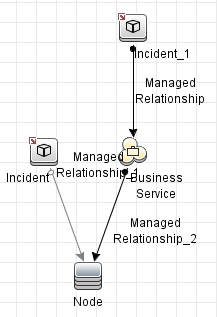
For this TQL query, the adapter must declare the supported classes in the adapter settings XML file located in the adapter package ZIP file in the discoveryPatterns folder. The supported classes are node, incident, and business_service.

In the Integration Studio, the incident must be selected on the Federation tab, as shown below:
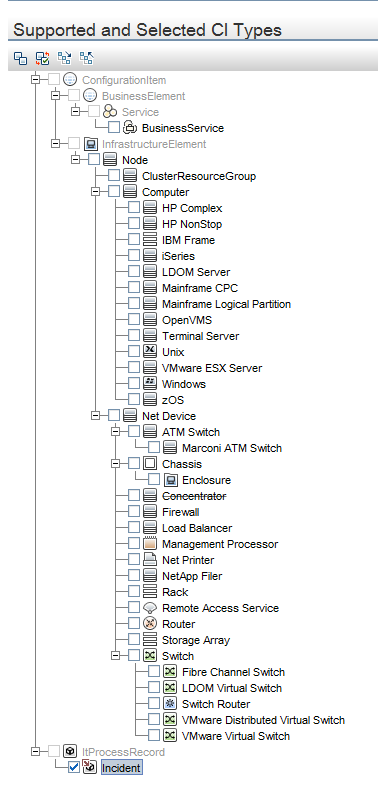
For this TQL query, the following 3 static TQL queries are needed in the adapter:
- Incident (Incident)
- Incident and node with managed_relationship (Incident to Node)
- Incident and business_service with managed_relationship (Incident to BusinessService)

|
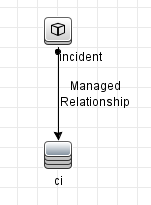
|
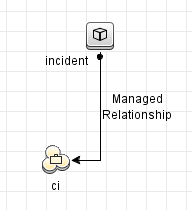
|
| Incident | Incident To Node | Incident linked to business_service |
For information about how to obtain static TQLs, see Set Up Static Federation TQL Queries. Although these TQL queries have conditions dependent on the data present in UCMDB, this should not affect the structure of the TQL queries or how the mapping is performed.
For each of these TQL queries, a mapping file is required in the adapter:
-
Mapping for the Incident TQL query

-
Mapping for the Incident To Node TQL query
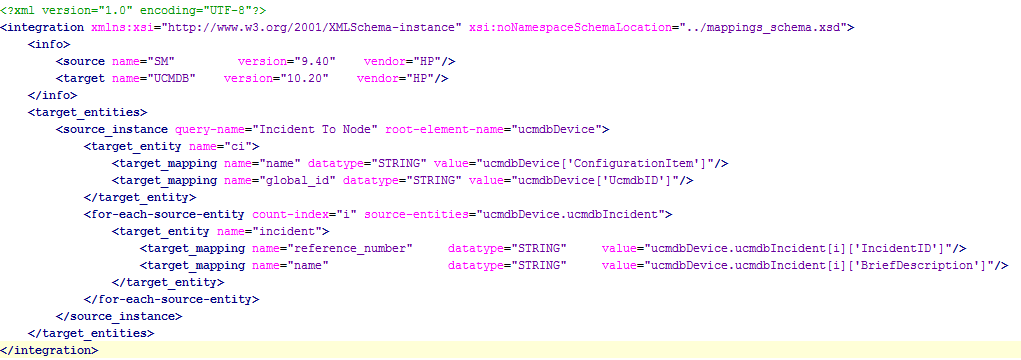
-
Mapping for the Incident to Business Service TQL query
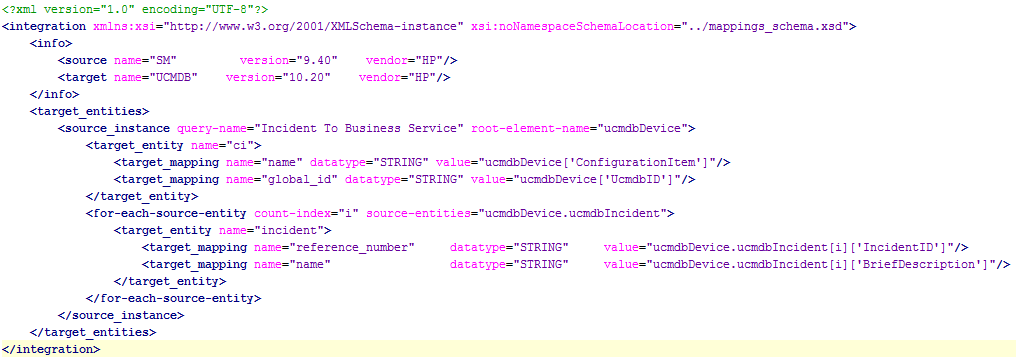
After having the mappings and the static TQL queries in place, federation will work for all subtypes of node and business_service.
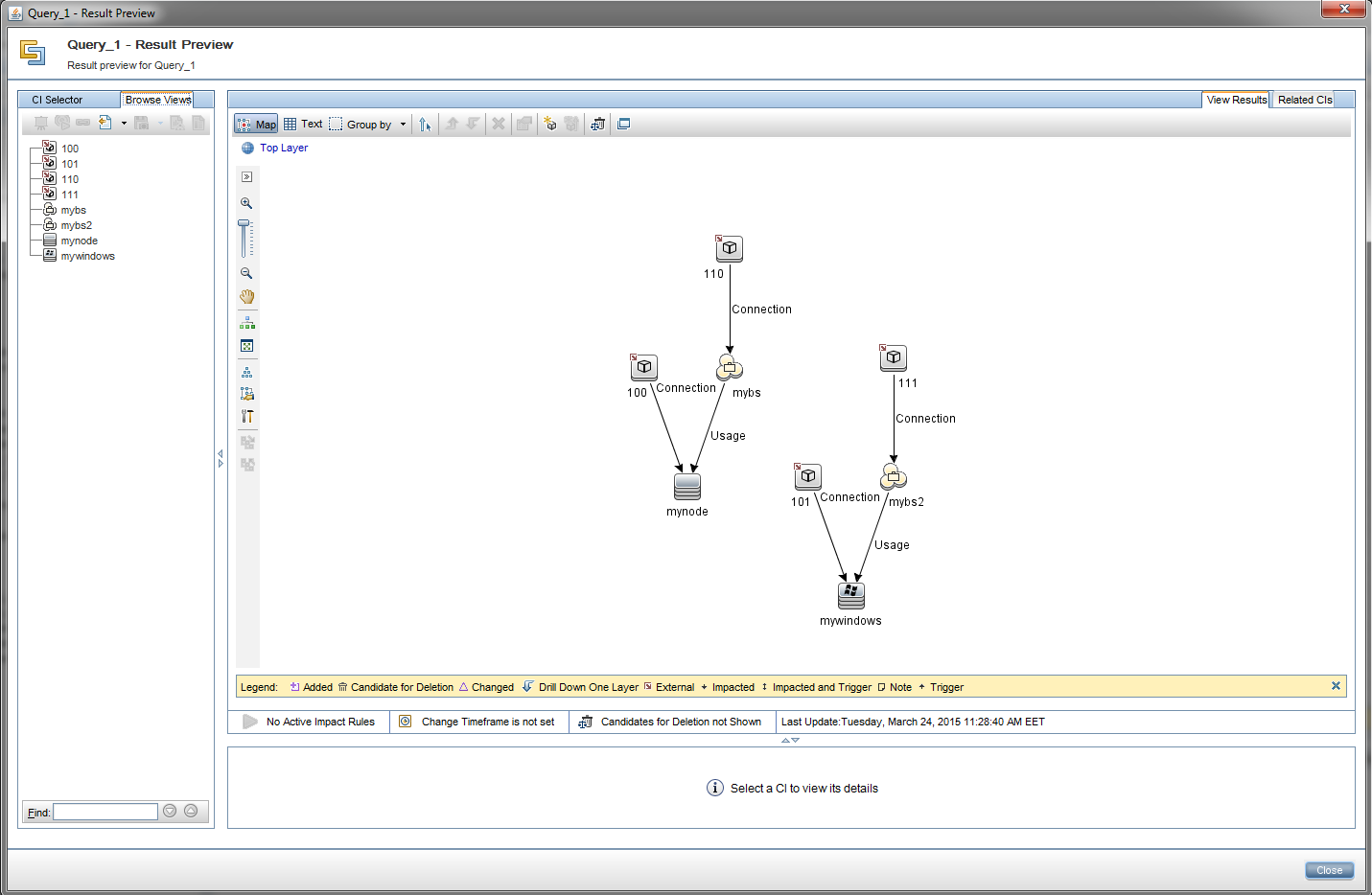
An optimization can be done in this case to reduce the number of mappings. Currently there are 3 mappings needed, but the mappings for Incident To Node and Incident To Business Service are the same, so you can use only one mapping by putting a wildcard in the query-name parameter as illustrated below:
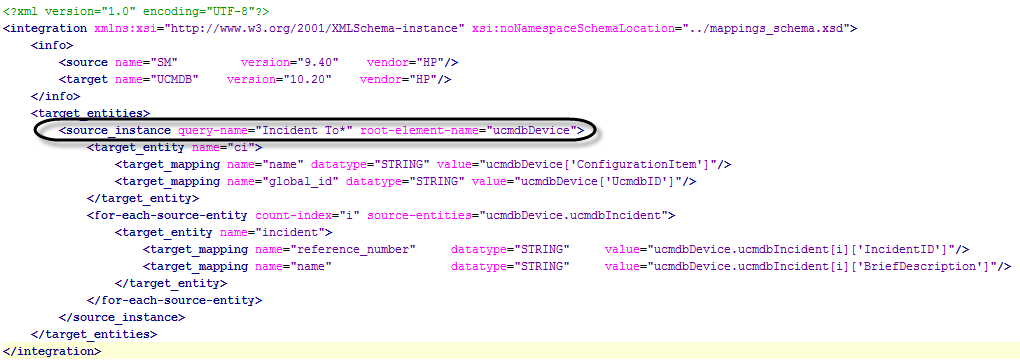
By changing the query name to Incident To*, it means that all the static TQL queries whose names start with Incident To will use this mapping file. Therefore, instead of having 2 mapping files for Incident to Node and Incident To Business Service, we can use only the one from above (Incident To*).
These TQL queries and mapping files must be present in the adapter, as shown below:
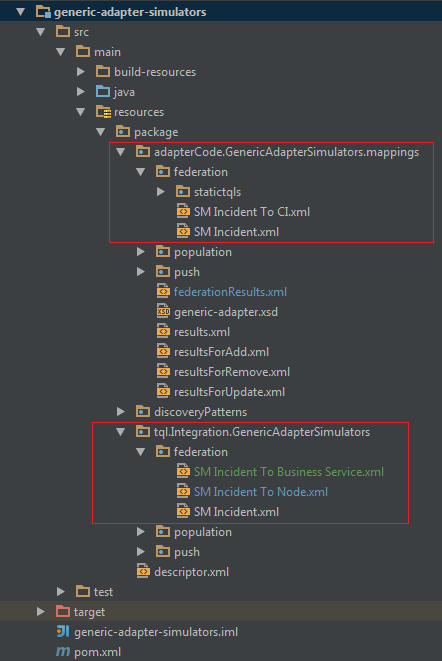
We welcome your comments!
To open the configured email client on this computer, open an email window.
Otherwise, copy the information below to a web mail client, and send this email to cms-doc@microfocus.com.
Help Topic ID:
Product:
Topic Title:
Feedback:





